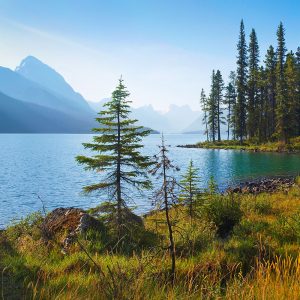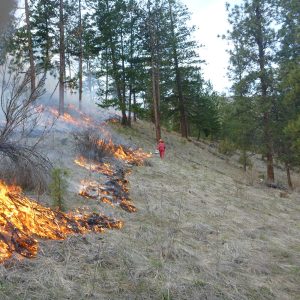Centres and Institutes
Our research Centres
Centres and institutes form the foundation of our research efforts. The Irving K. Barber Faculty of Science manages three centres, and our faculty members play an active role in many more. Working with community and industry partners, we strive to advance knowledge and provide students with hands-on research and learning opportunities.

Centre for Environmental Assessment & Research (CEAR)
CEAR at UBC supports research about environmental assessment (EA) processes and methods, and helps integrate this information into practice. Research conducted and supported by CEAR contributes to resource development by furthering knowledge about the role that EA plays in helping to advance natural resource management practices that benefit Canadians.

Centre for Optimization, Convex Analysis and Non-Smooth Analysis (COCANA)
OCANA CoLab is part of the COCANA, which performs fundamental research in convex and nonsmooth analysis and transfers the results to industry by solving practical industrial problems with a focus on commercial applications. COCANA researchers are mathematicians, computer scientists and engineers who apply state-of-the-art optimization techniques to solve real-life problems and provide our industrial partners an edge over their competition. OCANA CoLab allows research collaboration on-site or remotely. We routinely host seminars with researchers participating from the Pacific Northwest and abroad (e.g. Newcastle, Australia).

Centre for Wildfire Coexistence (CWC)
The CWC responds to an escalating need to proactively adapt forestry and land management practices with the aim of restoring healthy and resilient forests, as communities adapt to a changing climate.
Affiliated centres & institutes
UBC’s Biodiversity Research Centre includes more than 60 members across both campuses. The Centre’s research topics include evolution, systematics, phylogeny, ecology, fisheries, conservation biology, and theoretical modelling. Learn more.
CCDPM is UBC Faculty of Medicine’s first research centre located outside of BC’s Lower Mainland. With researchers from various faculties on the Okanagan Campus and beyond, the Centre is committed to health science and enhances the lives of people living with chronic illnesses. Learn more.
A model for interdisciplinary research, ICER includes researchers in a wide range of study fields to facilitate the participation of community members in research activities. Learn more.
IHLCDP supports research partnerships in new areas of research and education related to chronic disease prevention. Learn more.
Including researchers from various faculties/schools in UBC, MMRI creates multidisciplinary teams that conduct high-impact research at the interface of basic and applied sciences in materials and manufacturing, including aerospace, transportation, construction, biomedical, polymers, electromagnetic, and nanoscale manufacturing. Learn more.
The Okanagan Institute for Biodiversity, Resilience, and Ecosystem Services (BRAES) is a group of over 30 faculty members and their graduate students working in ecology, biodiversity and conservation, and environmental sustainability on UBC’s Okanagan campus. BRAES’ special strength is its multidisciplinary focus, with members from departments of biology, mathematics and statistics, literary and cultural studies, earth and environmental sciences, physical geography, economics and creative arts. Learn more.
The Wine Research Centre’s mission is to conduct pioneering and globally significant research in enology and viticulture and to develop highly qualified human resources who will promote the technological advancement of the wine industry in British Columbia and Canada. This initiative is based on a concept of collaboration with researchers at the University of British Columbia on both the Vancouver and Kelowna campuses, at other educational and research institutions, and with all facets of the wine industry. Learn more.
CLusters
Research clusters are interdisciplinary networks of researchers who address critical societal and cultural problems. These researchers work together to solve challenges that transcend traditional boundaries associated with departments, institutions, and funding agencies.
This cluster brings together experts with diverse biology, bioinformatics, chemistry and engineering skills to investigate bioproducts in plants grown for food, medicine, cosmetics and industrial raw materials. Learn more.
This cluster brings together a multi-disciplinary team of researchers from the Materials and Manufacturing Research Institute (MMRI) with industry partners and government authorities to better understand and enhance the synthesis, processing, properties and compounding of bioplastic and bio-fibre materials and to produce innovative biocomposite products. Learn more.
This collaborative initiative finds ways to enhance human comfort in extreme and high-risk environments based on basic and applied research in engineering (materials, biomedical, and electrical) and computer science (big data analytics, and machine learning). Learn more.
This interdisciplinary team will mobilize experts in traditional ecological knowledge, large animal biology, plant ecology and ecosystem assessment and mapping to inform policy and practice and develop tools for resilience in the face of prior ecological disruption and impending climate change. Learn more.
With expertise in engineering, chemistry, and health sciences, the cluster addresses early disease diagnosis, disease propagation, and potential disease treatments using the detection and isolation of exosomes (nano-vesicles in body fluids). Learn more.
The Centre for Green Infrastructure will integrate and leverage the expertise of researchers in engineering, economics, geography and the social sciences to develop comprehensive and integrated solutions, including new tools, techniques, policies and best management practices for planning, operations, and community engagement. Learn more.
This cluster brings together researchers from both UBC campuses in the faculties of Arts and Science, Applied Science, Forestry and the Sauder School of Business to support Indigenous-led impact assessment. Learn more.
With expertise in wildfire imagery, spatial ecology, sustainability, cultural and philosophical analysis, biodiversity, and visual arts, the cluster integrates academic disciplines and indigenous knowledge to find better ways of living with wildfire. Learn more.
Four researchers in chemical biology, biophysics and bioengineering will utilize their complementary expertise to develop an innovative technological platform to measure molecular processes at the junction between two nerve cells (synapses), in health and neurodegenerative disease states. Learn more.
This research cluster will bring together multidisciplinary researchers in computer science, management, medicine, nursing, and social work to conduct high-quality, collaborative, and community-based rural health research to promote the health of children and youth, older adults with chronic disease, and Indigenous people living in rural communities. Learn more.
Combining expertise in materials, devices, and system development, the Cluster improves ways to sustainably harness and store the abundant energy from the sun to combat climate change. Learn more.
This interdisciplinary research team develops ways to assess and manage critical linkages and interactions in a changing environment, including forest disturbance, cumulative hydrological effects, resilience, indigenous values in watershed governance, and climate change adaptation. Learn more.
This cluster will use cutting-edge bio-chemical and genetic analyses to better understand and communicate the identity and terroir of B.C. wines, assist the B.C. wine industry’s efforts to transition to more sustainable agricultural practices, and evaluate how the wine industry affects the region’s socio-economic development. Learn more.
Facilities
State-of-the-art facilities enable researchers in the Irving K. Barber Faculty of Science to discover solutions to complex issues.
The Facility for Environmental and Biological Imaging provides state-of-the-art confocal microscopy services to members of the UBC community and external researchers.
Services include training and advice on imaging needs, as well as the use of the facility’s instruments, including the Olympus FluoView FV10i, Olympus FluoView FV1000, and Zeiss Axioimager. Learn more.
The FiLTER Lab is a new research facility accessible to researchers and external researchers across UBC’s Okanagan campus. Made possible by investments from the Government of Canada and the generous donations of Charles Fipke, it specializes in trace element analysis and electron microscope imaging. Services include inductively coupled plasma spectrometry, scanning electron microscopy, and electron probe microanalysis. Learn more.
Although wildfire is a natural and essential characteristic of forestry ecology, current climate and migration patterns appear to increase fire risk within the wildland-urban interface. Fire managers across Canada have grappled with strategic resource management issues related to suppressing and mitigating wildfires for decades. In recent years, they have turned to statistical modellers to assess the uncertainties and risks to both human life and property.
With improved predictive models of fire behaviour, provincial fire management agencies can hope to allocate scarce fire suppression resources more efficiently. The Data Visualization Laboratory contains the computing infrastructure needed to enable Data Scientists at UBC Okanagan to develop static and mobile software tools for use by fire managers in real time and for long-term strategic planning. While fire science is a significant priority for the lab, as a Data Science facility, it is also set up to handle data visualization and modelling problems arising in other areas, most notably, quality assurance applications arising in computational medical physics through collaborations with the BC Cancer Agency. Learn more.
From food security and forest renewal to the development of novel bio-fertilizers and compostable plastics, UBC Okanagan’s plant growth facility will expand the research capacity of our scholars to work collaboratively to benefit the social and economic health of our region. Learn more.
Research Groups & Laboratories
Learn more about discipline-specific research in the Irving K. Barber Faculty of Science by visiting our department websites.